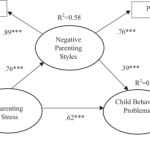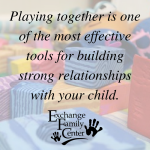Table of contents
Teaching Children Mental Health and Self-Care: How to Promote Positive Development and Well-Being
Teaching your children about mental health and self-care has numerous benefits and can play a vital role in promoting positive mental wellbeing and self-esteem. Mental health and self-care education provide children with the tools they need to manage their thoughts, feelings, and behaviors and take control of their goals and overall wellbeing.
The younger the child, the earlier they should be exposed to mental health and self-care education. It is important for parents and teachers to be aware of the mental health needs of their children and to promote healthy communication and habits from a young age.
In this article, we look at the importance of teaching mental health and self-care to children, discuss tips for doing so, and provide advice on how to promote healthy development and wellbeing.
Why Teach Mental Health and Self-Care to Children?
Mental health education for children is essential in helping them develop resilience, cope with trauma or difficult times, and improve mental wellbeing. Learning about mental health and self-care can help children:
- Understand and manage their thoughts, feelings, and behavior.
- Develop healthy communication skills and relationships.
- Build self-confidence and self-esteem.
- Cope with challenging circumstances and identify signs of distress.
- Develop healthy ways of dealing with stress.
By teaching mental health and self-care to children, they can learn the necessary skills to manage their mental wellbeing, build positive relationships with their peers, and take control of their lives.
Tips for Teaching Mental Health and Self-Care to Children
Mental health and self-care education is an ongoing process that can take time. Here are some tips to help parents and teachers promote mental health awareness and self-care among children:
- Create a safe environment – Be open and honest in discussing mental health and self-care, create a supportive environment where children feel comfortable asking questions and speaking about their feelings.
- Be a role model – Model healthy behaviors and attitudes such as taking care of your own mental wellbeing and respecting others. Show children that it is normal to talk about thoughts, feelings and behaviors.
- Encourage positive self-talk – Make sure children are aware of their own positive qualities and encourage them to boost their self-confidence. Remind children that mistakes are normal and part of learning.
- Help children find fun activities and hobbies – Encourage children to find activities, hobbies and interests that give them a sense of purpose and achievement, such as joining a sports team or taking music lessons.
- Make time to connect with your child – Spend quality time with your child and engage in meaningful conversations. Ask open-ended questions, listen and show empathy.
Promoting Positive Mental Wellbeing and Self-Care
Promoting positive mental wellbeing and self-care among children requires a combination of all of the above. Parents and teachers should actively support children in developing a strong sense of identity, positive relationships, coping mechanisms, and healthy habits.
Research suggests that children who understand, manage, and take care of their own mental health are better equipped to navigate difficult times, and have better mental, emotional, and physical health.
Teaching mental health and self-care to children from a young age has a number of benefits. It can equip them with the tools and skills to cope with challenging situations, build healthy relationships, and manage their thoughts, feelings, and behavior. All of these things lead to overall wellbeing and positive mental health.








